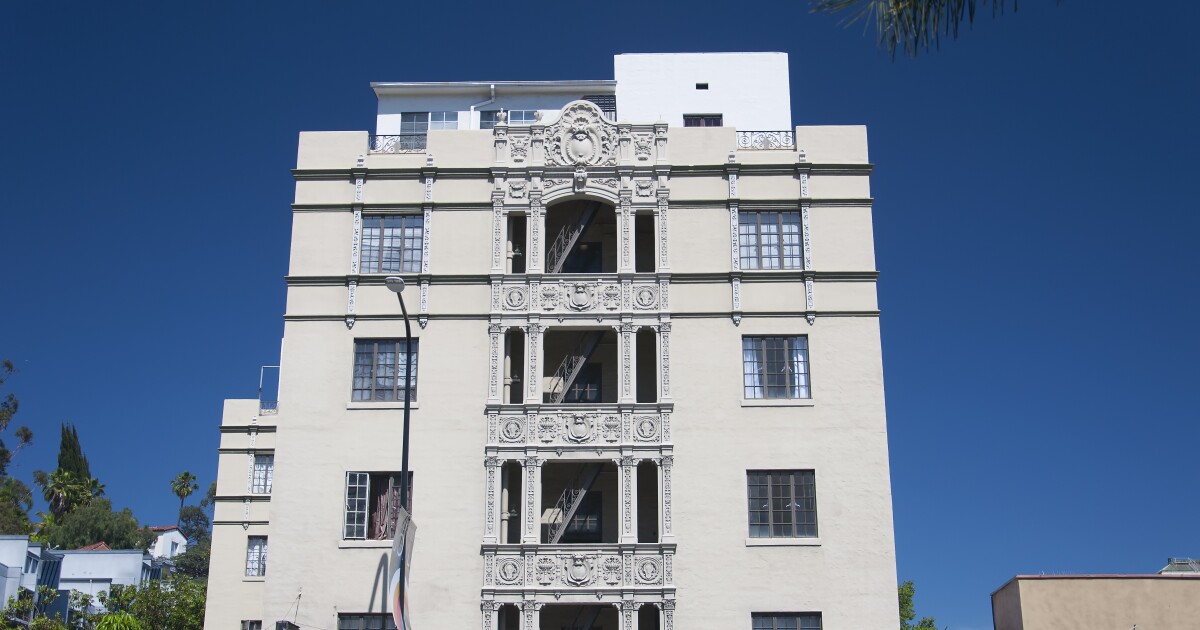Keep up with LAist.
If you’re enjoying this article, you’ll love our daily newsletter, The LA Report. Each weekday, catch up on the 5 most pressing stories to start your morning in 3 minutes or less.
On scorching days like this one, Yecenia Lopez fills her bathtub with water and sits in it until she feels the heat break.
Her apartment in the city of Bell has no air conditioning. She could install a window unit, but she says she can’t afford the electricity bill. So she’s stuck with less effective methods — opening and closing windows strategically, and drinking lots of water. Still, the heat keeps her up at night.
A new study from Strategic Actions for a Just Economy, or SAJE, looks at how extreme heat effects renters like Lopez across Los Angeles. The nonprofit interviewed 58 mainly low-income tenants, and most said they didn’t have air conditioning, either because they couldn’t pay for it or because their landlord wouldn’t allow it.
“ I personally would love an air conditioner,” Lopez said through an interpreter. “Unfortunately, I think the biggest worry I have with that is just seeing a really high electricity bill again. But I would like the city to intervene.”
There’s a cost to escape the heat
Tenants told SAJE that the cost of air conditioning was prohibitive. But multiple people said that they wanted their landlords to put in AC anyway, so they could have the choice to use it when they needed it.
The majority of renters surveyed said they would use air conditioning if their landlords installed it for free.
“Probably, there would be more costs in some ways, but I think I’d end up spending less than having to leave the house,” one renter told researchers.
Other tenants said that window units — a common sight in L.A. apartment blocs — are ineffective, and don’t always work depending on the type of window.
Another renter told researchers she had two AC units but using them would lead her power to shut off. She told SAJE she slept with ice packs on her feet.
Escaping the heat of the apartment costs money, too. Renters told researchers that the cost of driving to the beach or a restaurant added up. Even going to one of the city’s free cooling centers can require paying travel costs to get there, or a wait at a bus stop that may not have shade.
State law protects renters from the cold, but not the heat
Renters’ struggles with the heat is an issue that’s gained traction in California in recent years, as the summers get hotter and the climate keeps warming. State law requires landlords to provide heating equipment for rented units that can keep indoor areas at or above 70 degrees, but there’s no comparable legislation for cooling.
The California Department of Housing and Community Development recently issued policy recommendations, including setting a “maximum safe indoor air temperature” of 82 degrees for residential spaces.
What about the county?
The Los Angeles County Board of Supervisors is also considering a plan to establish a maximum safe temperature threshold. That motion doesn’t mince words, opening: “Extreme heat is the deadliest climate risk facing Los Angeles County.”
Local landlord groups have opposed the idea of implementing requirements to keep apartments cool, citing high costs. Meanwhile, tenant advocates have suggested they don’t go far enough. Chelsea Kirk, who wrote the report on AC and renters for SAJE, said she supported implementing a temperature threshold, but questioned if it would lead to real change.
“ It has no enforcement teeth,” she said. “This policy isn’t really gonna work for our members.”
Some local governments like Palm Springs, where temperatures can top 120 degrees during extreme summer heat, have stricter cooling requirements. That city requires residential dwellings to have air conditioning equipment capable of keeping the space 80 degrees or cooler.
Immigration raids exacerbate problem
This summer poses an additional challenge for L.A. renters like Yecenia Lopez in Bell.
She used to walk to her local park to stay cool and get some air. Since federal agents descended on Los Angeles last month, she said she has stopped strolling around the neighborhood.
“ All my neighbors feel the same way,” she said. “We can’t go on our walks anymore. We can’t take our kids to the park and try to escape the heat.”
As the hottest months of the year arrive, she said she and her neighbors are mostly sitting in their courtyard behind a locked gate.
Otherwise, they’re inside, in an apartment that can feel more like an oven.
